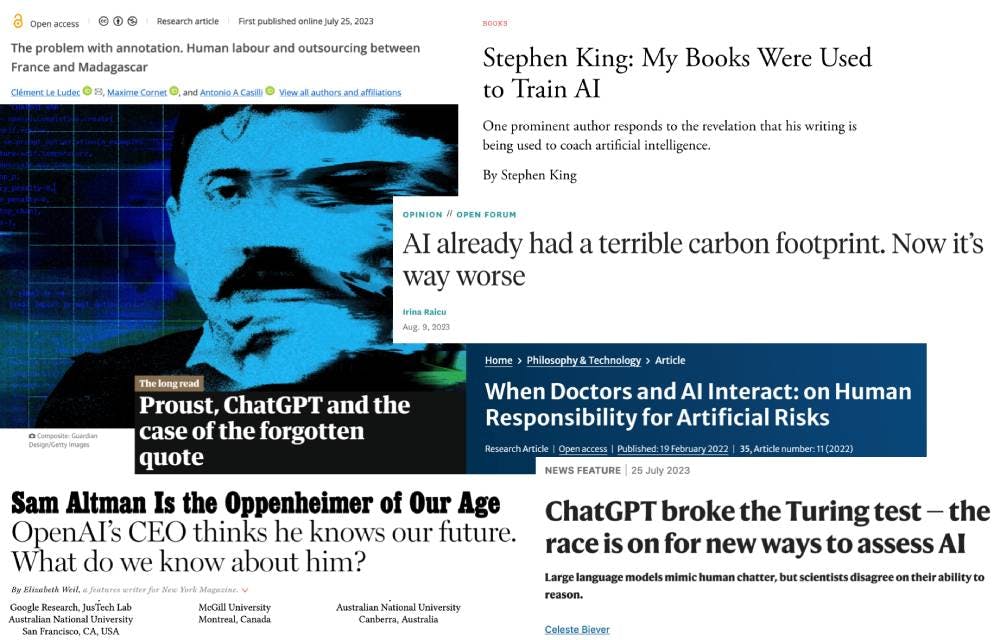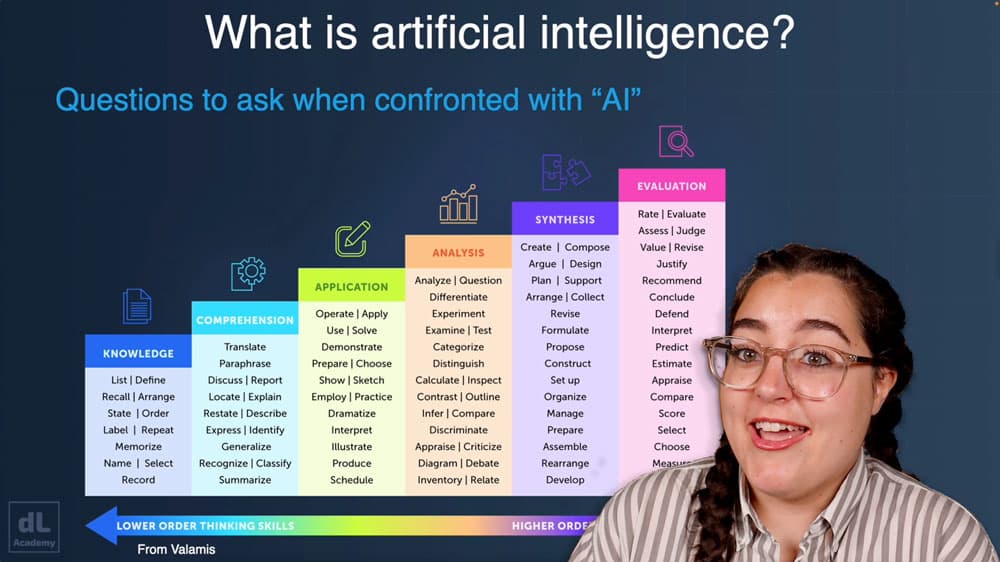- Have developed an understanding of how, historically, the terms AI, AGI, and ML have been applied, and how to unpick one from the other in a practical and context-dependent way
- Have explored case studies in data and privacy violations that highlight the ways in which AI applications, applied unethically, can be harmful to various sectors of society
- Have consciously unpicked your ideas on the meaning of creativity, and establish if and how AI can engage with creativity
- Have developed a critical lens to better discern whether new AI applications may be being applied unethically.
In this first course in our series on ethical AI, we'll be entering more abstract waters than previous courses you might have undertaken with the Academy. As AI continues to make headlines around the world, from new camera phones that enable the use of generative AI, to jobs disappearing from the market, to the impacts using AI models are having on resources like our carbon and water budgets, it's important to establish a framework to critically approach AI ethics.

Figure 1. Headlines and research surrounding artificial intelligence and the effect of this research subfield on our economy, world views, and resources have exploded into the mainstream with new technology products like ChatGPT.
In this course, we'll be exploring:
- the differences between machine learning, artificial intelligence (AI), and artificial general intelligence (AGI),
- why it matters to be precise about which term you use,
- and, is there ever going to be such thing as AGI and why does it matter?
We'll also discuss creativity and AI. Many machine learning models today, and much of the AI ethics discourse, revolves around large language models (LLMs) and other generative AI models that can generate human-like text and images. To what extent is that creativity? Can we say that a machine is creative, or is that verging on anthromorphising something that's merely a set of algorithms? We'll be speaking directly with artists to examine this very issue and exploring what the impact of this has been on their careers.

Figure 2. A MidJourney generated image of a University of Exeter building in an oil painting style. Images like this, generated by MidJourney or other similar generative AI tools, has revolutionised people's access to custom-made imagery. What kind of impact does this have on our economies or perception of art? How do tools such as this come to be made? We explore this in our course, and challenge you to define for yourself what art is to you.
Finally, we'll address data and privacy concerns. Technology today bolsters almost every aspect of our lives, but it requires data, and sometimes, to give up our privacy. Why does it matter that we give machine learning models data? What kind of discussions do we need to have in society regarding our intellectual property? What level of privacy are we okay giving up in order to use these tools, and what are the consequences for society at large?
Course breakdown
The course is divided into three discussions each of which will be accompanied by a video and a set of recommended reading. The discussions are:
- The interplay between machine learning, artificial intelligence, and artificial general intelligence: Unpacking heavily loaded terms such as artificial intelligence, and getting to the root of how they are perceived by the public at large
- Creativity: of, around, and with AI: Deconstructing an aspect of intelligence, in this case, creativity, and determining whether machine algorithms can ever partake in this kind of intelligence
- Data and privacy concerns for machine learning tools: Understanding the wider societal impacts that certain applications of algorithms or their database use has had
Many of the digiLab Academy courses revolve around hard STEM content. This course is a little different! Whilst we present hard facts, as well as subjective critical discourse, it's up to you to develop your own ideas in a methodical and critical manner, by enaging in communication with your fellow course peers and us here at digiLab. We encourage you to get stuck in, engage with the recommended reading and the critical questions posed at the end of the lessons.
We will be following up this course with two more courses on AI Ethics. Keep an eye out for them in the coming months!

